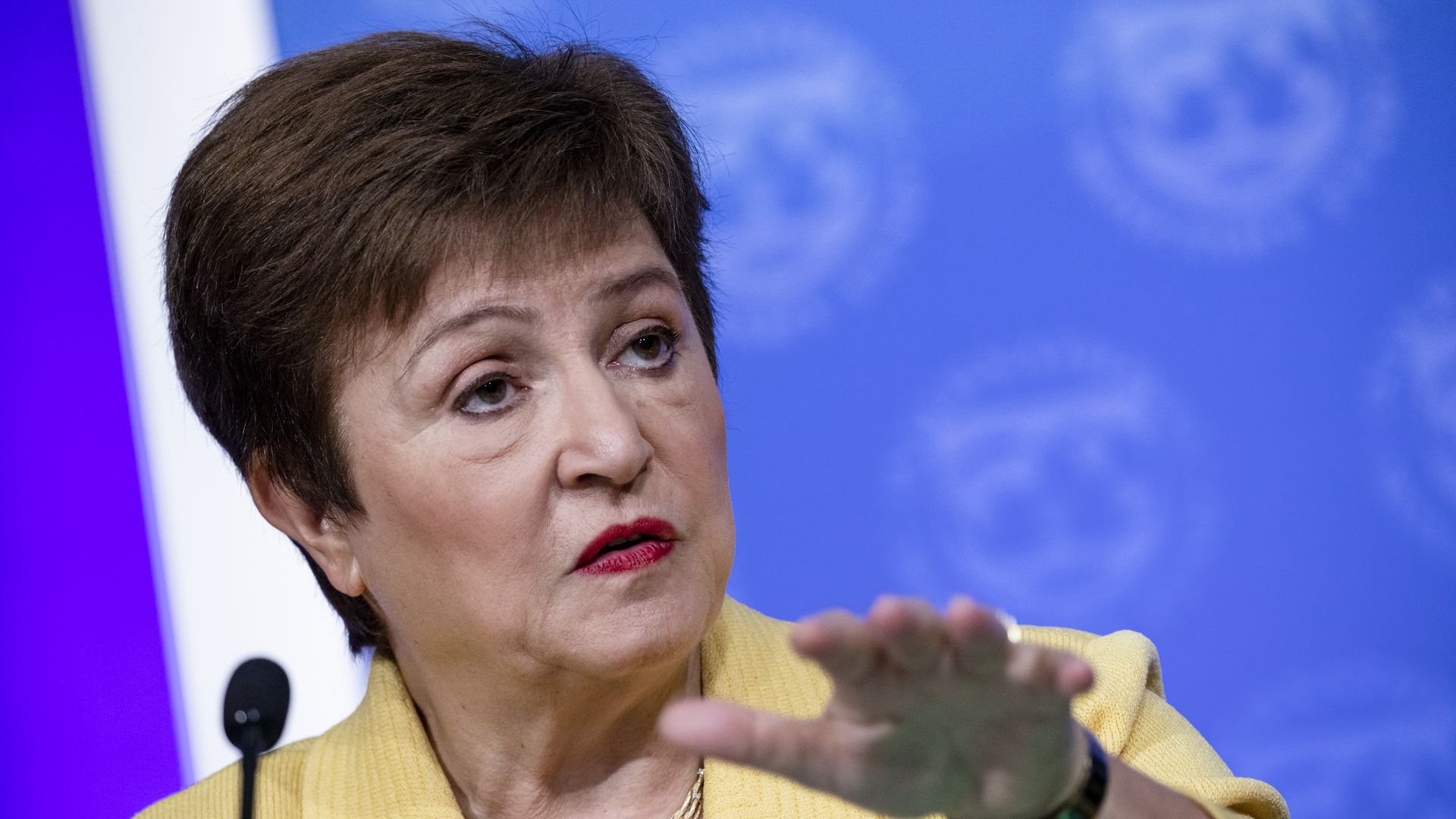Mar 13, 2022 - World
IMF managing director expects "deep recession" in Russia
Add Axios as your preferred source to
see more of our stories on Google.

IMF managing director Kristalina Georgieva speaks during a press conference on March 4, 2020, in Washington, D.C. Photo: Samuel Corum/Getty Images
